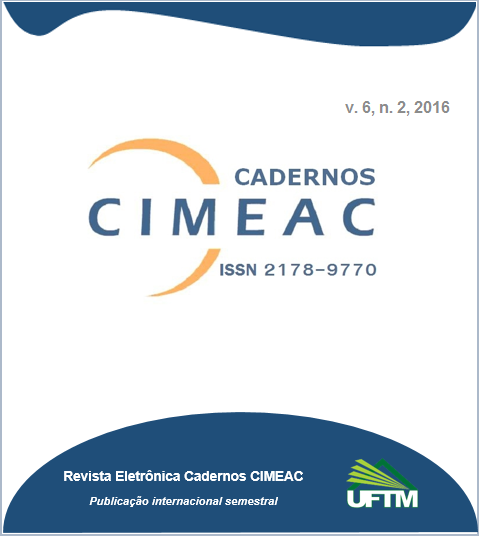Vozes ameríndias na universidade pública inclusiva / Amerindian voices in inclusive public university
DOI:
https://doi.org/10.18554/cimeac.v6i2.1923Resumen
A lei de cotas é um marco rumo à universidade pública inclusiva. Todavia, seu modelo pode não contemplar especificidades culturais. O objetivo deste trabalho é apresentar vozes indígenas sobre o assunto. Visa-se dar ouvidos às comunidades e lideranças indígenas no acompanhamento dessa política. Utilizou-se uma abordagem qualitativa, própria à etnopsicologia, que consistiu em explicitar comparações implícitas entre as culturas ameríndias e a ocidental. Analisaram-se as falas de palestrantes indígenas nas três edições do Encontro Nacional dos Estudantes Indígenas (ENEI). Os resultados mostram que acessar o ensino superior é uma estratégia política e que o território é o principal articulador conceitual. A universidade é vivida de modo peculiar, sem necessariamente corresponder aos moldes da formação ocidental. Os contrastes epistemológicos, pedagógicos e ontológicos por eles evidenciados sustentam propostas em direção à intercientificidade e à interculturalidade (CAPES).
Palavras-chave: indígenas, políticas de ações afirmativas, ensino superior, etnopsicologia.
ABSTRACT: The Quota Law is a milestone towards inclusive public university. However, this model may not contemplate cultural specificities. This paper aims to present Amerindian voices about this subject by listening to communities and indigenous leaders in monitoring this policy. We used a qualitative approach specific to Ethnopsychology methodology which consists of explicit implicit comparisons between the Amerindian cultures and Western cultures. The speeches of indigenous speakers in the three editions of the National Indigenous Students Meeting were analyzed. The results show that the access to higher education is a political strategy and that the territory is the main conceptual articulator. The university is experienced in a special way, without necessarily matching to the mold of Western education. The epistemological, pedagogical and ontological contrasts highlighted by them support proposals towards interscientism and interculturalism.
Keywords: Indigenous people, affirmative action, higher education, ethnopsychology.
Descargas
Publicado
Número
Sección
Licencia
Os autores que publicam nesta revista concordam com os seguintes termos:
(a) Não cobramos dos autores para a publicação neste periódico.
(b) Autores mantém os direitos autorais e concedem à revista o direito de primeira publicação, com o trabalho simultaneamente licenciado sob a Licença Creative Commons que permite o compartilhamento do trabalho com reconhecimento da autoria e publicação inicial nesta revista.
(c) Autores têm permissão e são estimulados a difundir e a distribuir a versão publicada de seu trabalho online (ex.: em repositórios institucionais ou na sua página pessoal) após o processo editorial, já que isso pode aumentar o impacto e a citação do trabalho publicado (Veja O Efeito do Acesso Livre).
* * *
AUTHORS COPYRIGHT AND PUBLISHING RIGHTS
Authors who publish with this journal agree to the following terms:
(a) This journal does not charge authors for publication.
(b) Authors retain copyright and grant the journal right of first publication with the work simultaneously licensed under a Creative Commons Attribution License that allows others to share the work with an acknowledgement of the work's authorship and initial publication in this journal.
(c) For authors whose articles have been accepted: authors are permitted and encouraged to post their work online (e.g., in institutional repositories or on their website) after the publication of the text in Cadernos CIMEAC, as it can lead to productive exchanges as well as earlier and greater citation of published work (See The Effect of Open Access).

 10.18554/cimeac
10.18554/cimeac

